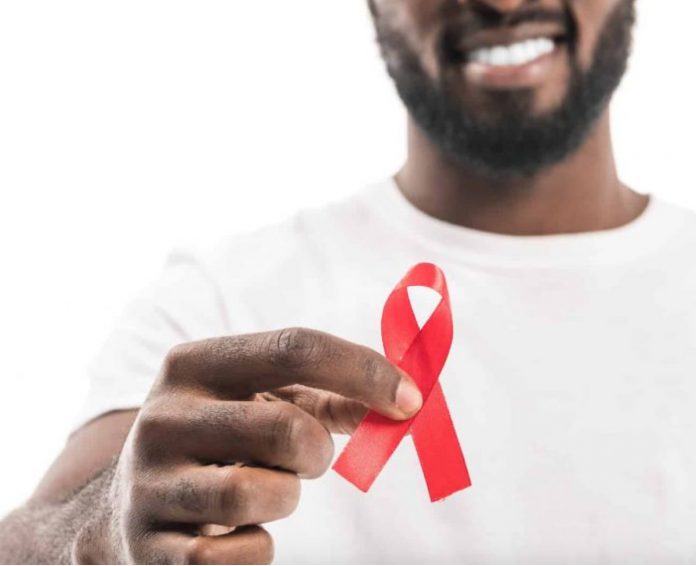
Human Immunodeficiency Virus, more commonly known as HIV, is a familiar topic of discussion within the LGBTQ community, especially when it comes to cure-related trials and treatments. In an effort to find a cure, doctors and other top medical professionals have held clinical trials since the late 1980s. Given the history of the AIDS epidemic, the use of experimental medication and the possible reduction or halting of antiretroviral treatments, it is only natural that ethical concerns arise.
In a new paper published in the Journal of Virus Eradication, Rutgers ethicists Monica Magalhaes and Nir Eyal, and Harvard doctor Daniel R. Kuritzkes asks, when a potential HIV remedy is worth testing, whether or not it is ethical to have a subject stop antiretroviral treatment to take a placebo. The writers argue that if stopping antiretroviral treatment to give participants an experimental medication is ethical in a particular trial, then so is stopping antiretroviral treatments to participants in the same trial who will get a placebo.

“We wrote this paper because our coauthor Daniel Kuritzkes, who specializes in HIV treatment and cure research, told us that people at conferences and in the field were questioning the ethics of giving participants whose antiretroviral therapy was interrupted nothing but placebo,” Monica Magalhaes, lead author and associate director of the Center for Population–Level Bioethics (CPLB) at the Rutgers Institute for Health said. “There was this perception that letting infected people go entirely untreated is inherently unethical, and that this is compounded by giving them placebo only. But when you analyze the practice carefully, giving some trial participants a placebo is often a scientific and ethical necessity.”
Magalhaes and her coauthors explored a broader range of ethical considerations and a wide range of possible outcomes in their paper. The general conclusion is that ethics not only allow, but demand placebos in some HIV cure trials.
Not all HIV trials involve the use of placebos, Magalhaes clarifies. There are trials that involve comparison such as the Control of HIV After Antiretroviral Medication Pause (CHAMP) study, which was analyzed in the paper. This study, which involves comparing post-treatment controllers (PTC), or participants previously treated with antiretroviral therapy (ART), is beneficial to some early-phase studies. However, the authors argue, for more cure-seeking studies, temporarily stopping ART for experimental medication and placebo usage would be more beneficial.
“The scientific value is kind of not what we are commenting on, but clearly, in many cases, it does add substantive scientific value,” Magalhaes said. “In that case, we’re saying you really should have [placebos].”
Antiretroviral cocktails usually keep levels of HIV in the blood under control indefinitely while they are taken, but drawbacks ranging from side effects to ongoing costs to the possibility of eventual failure make antiretrovirals inferior to cures — which remain a theoretical possibility.
There is widespread agreement among ethicists that, in HIV cure trials, it can be ethical to discontinue antiretrovirals temporarily — resuming once the levels of virus in the participant’s body start to bounce back up — when discontinuation is needed to test potential cures.
Jay Lassiter, an activist and columnist at Insider NJ who has been battling his HIV+ status for over 30 years, agrees with the importance of placebo usage in the current state of cure-related trials.
“The placebo is such an important part of gauging the progress of this research and gauging the success or the failure of this research, that I actually very strongly believe that the integrity of the science is compromised if we’re not holding that bit as sacrosanct,” he said.

Given his positive status, Lassiter has been involved in HIV activism and treatment since the 1990s. In a recent work titled, “HIV and Me, a 30 Year Tango,” he writes about his life experience, including his current involvement in an ongoing HIV trial.
The trial Lassiter is currently a part of is sponsored by the pharmaceutical company Merck and is based out of Thomas Jefferson University Hospital in Philadelphia. Lassiter’s blood is studied through the process of leukapheresis. Although this study does not currently involve the use of placebos, Lassiter said, he is thankful for all those, like himself, who have volunteered their time and body to finding a cure.
“Whoever’s feeling antsy because they got sorted into the placebo side of the research, I would just say to them, ‘Thank you my brothers and sisters,’ because the placebo vet is the unsung piece,” he said. “It’s maybe underappreciated.”
“There is widespread agreement among ethicists that, in HIV cure trials, it can be ethical to discontinue antiretrovirals temporarily – resuming once the levels of virus in the participant’s body start to bounce back up – when discontinuation is needed to test potential cures.”

Gary Paul Wright, co-founder and executive director of the African American Office of Gay Concern (AAOGC), who has been involved in the fight against HIV since the mid-1980s, noted that there is a distinct distrust of trials in Black, Indigenous, and people of color (BIPOC) communities. To help curb this distrust, Wright believes that it’s integral to give BIPOC representatives a seat at the table for these discussions.
“I remember when HIV/AIDS first hit the community. We were really upset that Black people weren’t taking part in it. So, I just can’t get my head around people just saying, ‘We don’t need to be doing this,’” Wright said. “I believe in science, and I believe that the science can make it better. And I believe that our community needs to work more with science and we also need more Black scientists. If we’re not at the table, nothing’s gonna get done.”
In the new paper, the writers discuss how, in reality, those getting the placebo in these HIV cure trials actually often do better, risk-wise, than the ones getting the experimental medication. Given the history of these trials, and how early in the cure stages medical professionals are, experimental treatments often fail to help patients. In fact, many experimental medicines in these early trials provided zero benefit to the patients and are also significantly more likely to produce toxic side effects than placebos. Therefore, the researchers conclude that placebo-takers may potentially be better off.
“Considering that HIV research is at a very early stage, nothing has worked so far out of everything that has been tried and all these interventions have the potential for side effects and toxicities and just some risks, when we thought about it, it seemed to us that really, if you’re really looking at the risks, maybe the people who are on placebo might be better off,” Magalhaes said.
Given the complexities and delicate nature of HIV cure trials, there is often a worry from ethicists about the notion of hope, and whether or not these studies are falsely building up an expectation for self cure. However, Magalhaes and her colleagues believe this isn’t a fact-based concern. In fact, it may be the opposite.
“My sense is that this isn’t a common problem. People do understand that it’s not likely to benefit them personally medically. They’re doing something for the community of people living with HIV, that they might bring help to people that are helping science,” Magalhaes said. “It’s just this whole like, ‘Are you denying some kind of psychological benefit to the person if you put them in a placebo group?’ And we’re just trying to think they’re helping equally — both arms, both groups are doing that. So, that should matter.”









